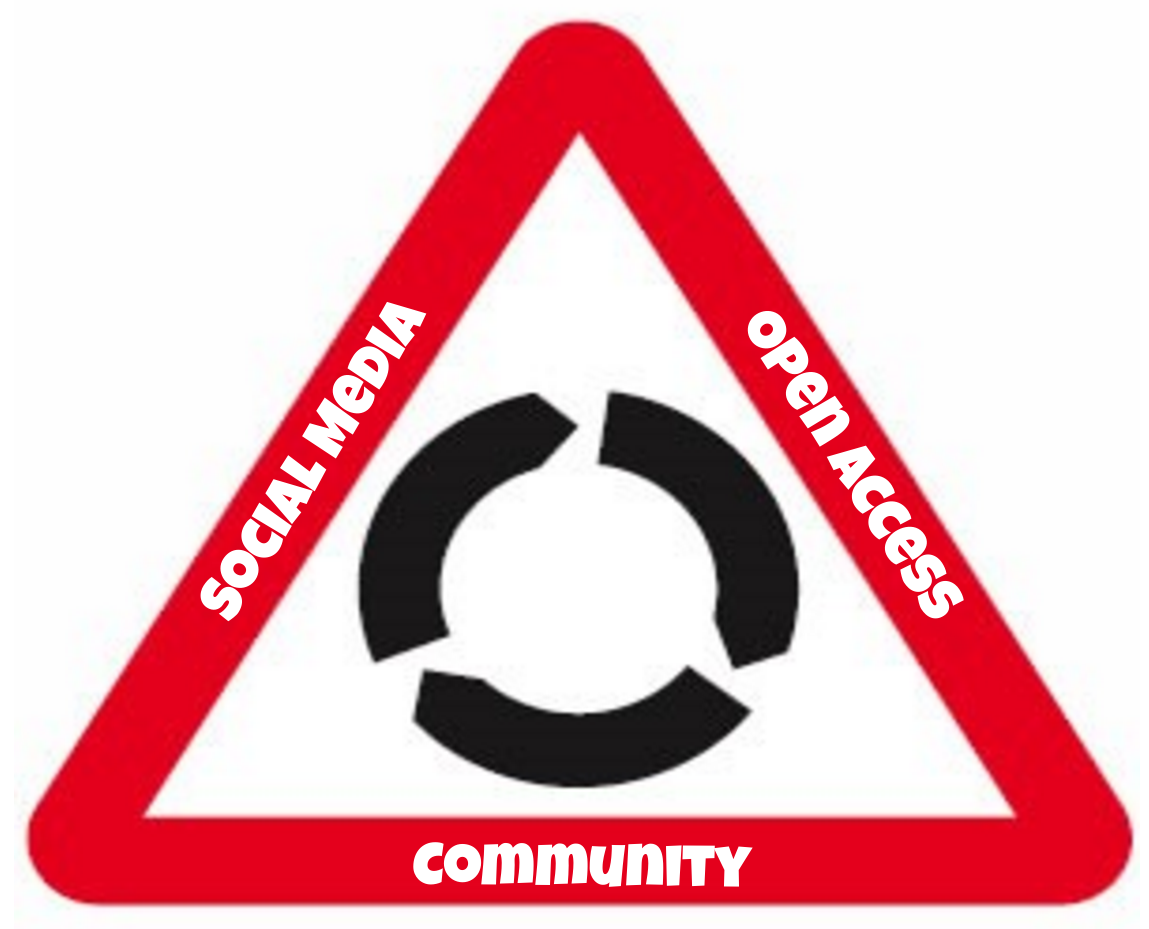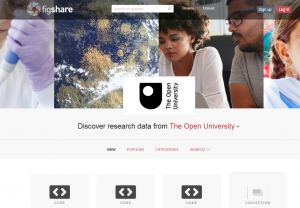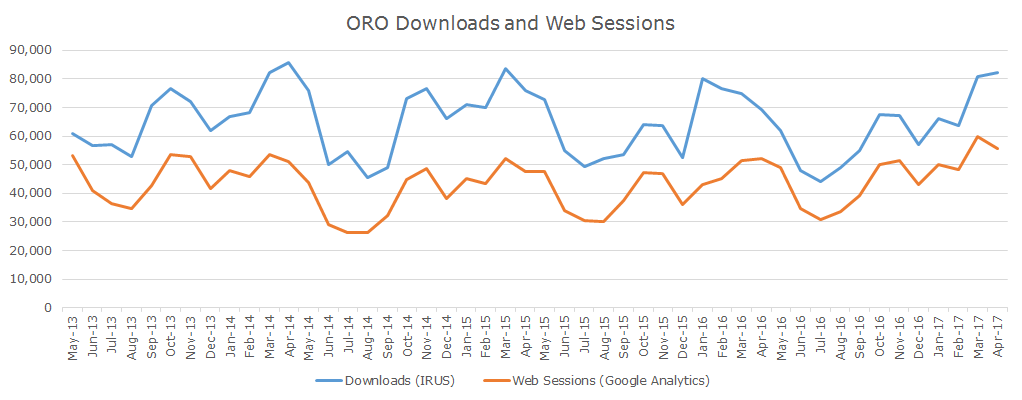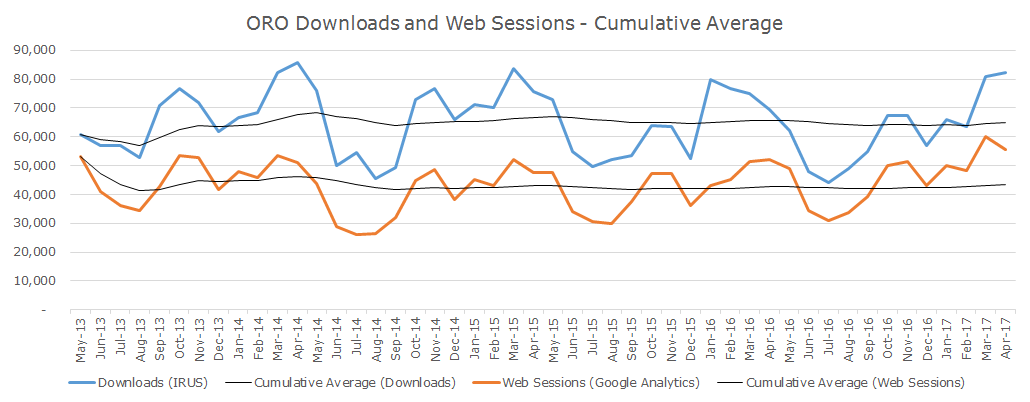This is the second post concerning ORO downloads in March and April 2017. The first looked at general characteristics of repository downloads, this one focuses on a single research output in ORO.
Mair Lloyd’s PhD thesis Living Latin: Exploring a Communicative Approach to Latin Teaching Through a Sociocultural Perspective on Language Learning appeared in the the Top 50 downloads from ORO in April with an impressive 173 downloads in April. It also had interesting referral traffic – 172 referrals from Facebook and 69 from reddit – much more than I would expect… so this was worth digging into a bit.
The thesis was made live in ORO on 10th April and on the same day Mair published a blogpost… thanks for the mention.
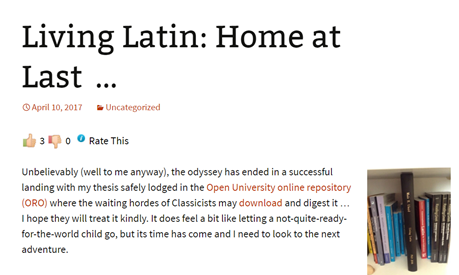
A couple of days later Mair tweeted and pointed to the same blogpost – this got a lot of retweets and likes on twitter.
And then on the 18th May The Society for the Promotion of Roman Studies retweeted Mair’s tweet and also posted it to facebook
RT Mair @MairLloyd My #PhD thesis on Living #Latin now available for download: #Classics
Posted by The Society for the Promotion of Roman Studies on Tuesday, 18 April 2017
On the 19th a new thread on reddit was created:

There was some discussion of the thesis on reddit and that is reflected in the number of referrals coming to ORO from the site.
On May 1st Mair’s thesis was picked up in the Latin around the Web weekly round up and in a facebook post:
Links to a few interesting Latin-related things we've come across the last week (+ an interesting quote).
Posted by Latinitium on Monday, 1 May 2017
Finally, and coming into May the thesis was picked up by the French language Langue & Cultures de l’Antique on its website…
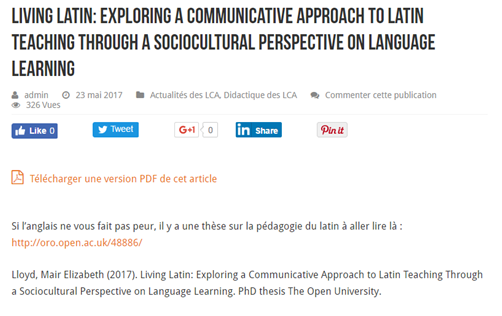
and again on twitter:
Phew!!! So lets map that against the downloads of the thesis and the visits to the ORO page:
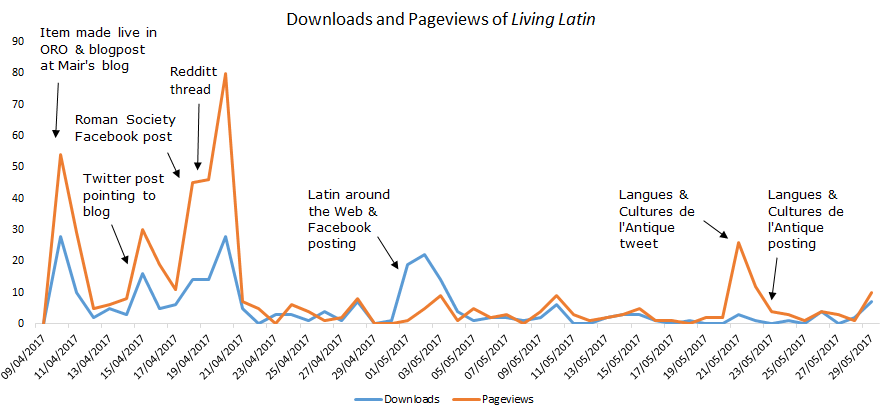
We can see the impact the various posts on social media and the web impact on the downloads and page views of the thesis. And (selected) referrals in April and May total:
- facebook 246
- reddit 72
- Latinitium (Latin around the web) 54
- twitter 10
- Langues & Cultures de l’Antique 7
But before I get too carried away with myself, Mair can provide some valuable insight:
This is a […] piece of research that was much awaited among practitioners of Living Latin, and […] many of that community are facebook friends and twitter followers of mine. It isn’t just social media per se but also strong relationships, forged through promotion at conferences and attendance at Summer schools that has driven up the interest in my work. Those relationships certainly add to the power that social media has to give wider publicity to research.
So, what might we conclude…
- Getting theses online and open access via a repository increases the dissemination of the research and the potential impact (please note – small i).
- Fostering relationships and community off and online can demonstrably increase the reach of the work.
- Once the research is out there, Open Access, it’s readership swells on the web and via social media beyond the initial interventions of the author.
I feel I want to draw a triangle… hang on, I live in Milton Keynes…
